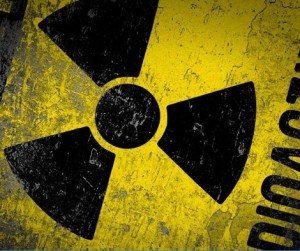
Akira Yamada is pictured in the city of Fukushima. (Mainichi)
FUKUSHIMA -- On the 66th anniversary of the atomic bombing of Hiroshima, survivors in Fukushima Prefecture -- home to the disaster-stricken Fukushima No. 1 Nuclear Power Plant -- have a unique perspective. One of those survivors is Akira Yamada, 85, the chair of the prefecture's A-bomb survivors' association.
"Who would think we would be threatened by radiation twice in our lives? I had never thought about nuclear power on Aug. 6 until now. This year is different, though. We have to think not only about why the nuclear bomb was dropped, but why we built nuclear power plants," he says.
On Aug. 6 this year, while watching the peace ceremony in Hiroshima on television at home, Yamada gave a prayer for the victims while wishing for an end to nuclear weapons.
On the day of the bombing in 1945, he was a 19-year-old high school student, at home in bed with a fever. Suddenly, there was a flash of light and a strong wind. After hiding under the house's porch for some time, Yamada climbed to the roof, where he was rendered speechless. Everywhere he looked was flames. He would later see abandoned bodies piled on the road, a sight that burned itself into his memory.
After the war, Yamada became an economist and later served as president of Fukushima University. Since 1981, he has been chair of a Fukushima Prefecture A-bomb survivors' association. However, the disaster at the Fukushima plant was far more than he ever expected.
"I thought of nuclear power plants as things for peaceful use, different from nuclear weapons. I never expected that they would lead to the spreading of radioactive materials," Yamada says.
Even after almost five months, that disaster is still ongoing.
"Nuclear bombs and nuclear plants are the same in that they both use nuclear fission, and this disaster has shown that humankind does not have complete control over nuclear power. We have to stop running the plants until we have safer technology."
The areas of Fukushima Prefecture left deserted by evacuations remind Yamada of the burnt remains of Hiroshima. "The effects of radiation come gradually. The people I'm worried about are the young," he says, adding, "Government agencies will have to closely monitor residents' health."
(Mainichi Japan) August 6, 2011








No comments:
Post a Comment